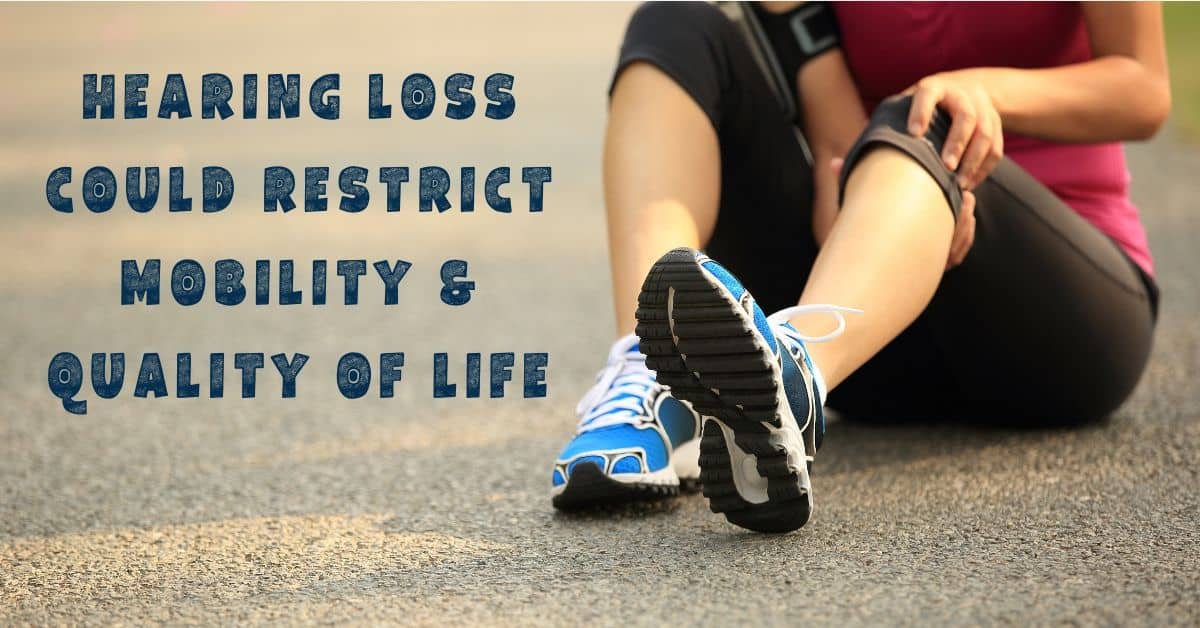
- A Step-by-Step Look at How Hearing Aids Make Sounds Sharper - May 5, 2025
- Causes of Conductive Hearing Loss? - April 27, 2025
- Can Treating Hearing Loss Reduce Stress? - April 15, 2025
Though you may believe hearing loss only affects your ears, this couldn’t be further from the truth. When you have hearing loss unseen limitations can impede the quality of your daily life. A recent study from Finland highlights that hearing loss often limits individual’s personal freedom in the way people structure their lives and the independence they have in their actual physical range of motions. The study looked at 848 individuals all between the ages of 75 and 90, mapping their “life space” also known as the boundaries of where these individuals traveled on a regular day. The study included a spectrum of gender, and compared those with hearing impairments to those with healthy hearing.
How is “Life Space” Defined?
The Finnish researchers used several factors to determine what comprises a person’s “life space”, one of the chief parameters used in the study. “Life space” is used to connote where people move in their day-to-day life, as well as how many times they go places, and whether or not they require assistance to move where ever they go. Participants who had hearing loss were twice as likely as those without hearing loss to limit their movements to a familiar radius close to their home. While everyone’s social needs are diverse, this restricted mobility can be an indicator of a declining quality of life. Previous research work in this senior age demographic has shown that unimpaired hearing and the ability to access a wide span of environments are both strong factors in persons reporting a good quality of life.
Hearing Loss and Social Spaces
It has long been understood that hearing loss can subtly mold a person’s social patterns. Anthropologists consider conversation to be the cornerstone of social interaction and social life, a vehicle for exchanging, sharing, and constructing meaning, knowledge, and identities. Conversation and spoken interaction are subject to more-or-less explicit social and cultural rules, and may be regarded as particular forms of exchange. When a person says something to another person, the recipient expects some kind of response within a certain time frame, depending on the situation and context.
Hearing loss, however, disturbs smooth exchange. Someone with untreated hearing impairment may find their enjoyment of various activities and locations becomes difficult when they are struggling to comprehend what they hear there. A sign of hearing loss to watch for is if a person gradually forgoes activities they once enjoyed, like dinners at restaurants, concerts or parties, because they cannot clearly understand sound in those environments. The more people withdraw from social situations the more their independence is compromised as they opt to spend more time at home rather navigating environments where they struggle to hear and understand.
Hearing Loss and Mobility
Hearing loss has many ways of limiting your mobility and can influence how you approach the world, in both unfamiliar and familiar settings. Often, hearing loss makes it hard to navigate noisy spaces. It limits the ability to both comprehend speech and locate the sources of sounds.
With these limitations, traveling to unfamiliar locations can produce extraneous anxiety and frustration. Crowded and busy areas like most public spaces can make it hard for people with hearing loss to feel comfortable and makes participating in conversation challenging. Places that are hubs for transportation like airports and train stations can become difficult, especially when critical announcements are given verbally over and announcement system.
Often a person feels less independent in that they must rely on others to communicate to them what auditory signals they can easily miss. The feeling of discomfort in these places and while traveling makes its mark however by gradually changing behavior patterns.
Seek Treatment Today
The Finish study conclusion emphasized that the quality of life of a hearing-impaired person has the potential to be transformed with more medical awareness and involvement in hearing issues and treatment.
Have you noticed your social patterns changing because of how you hear? If you’re experiencing changes in your hearing, now is the time to contact us at Hearing Aid Specialists of the Central Coast. We can help you find the best hearing aids to help you regain or maintain the independence you deserve.
